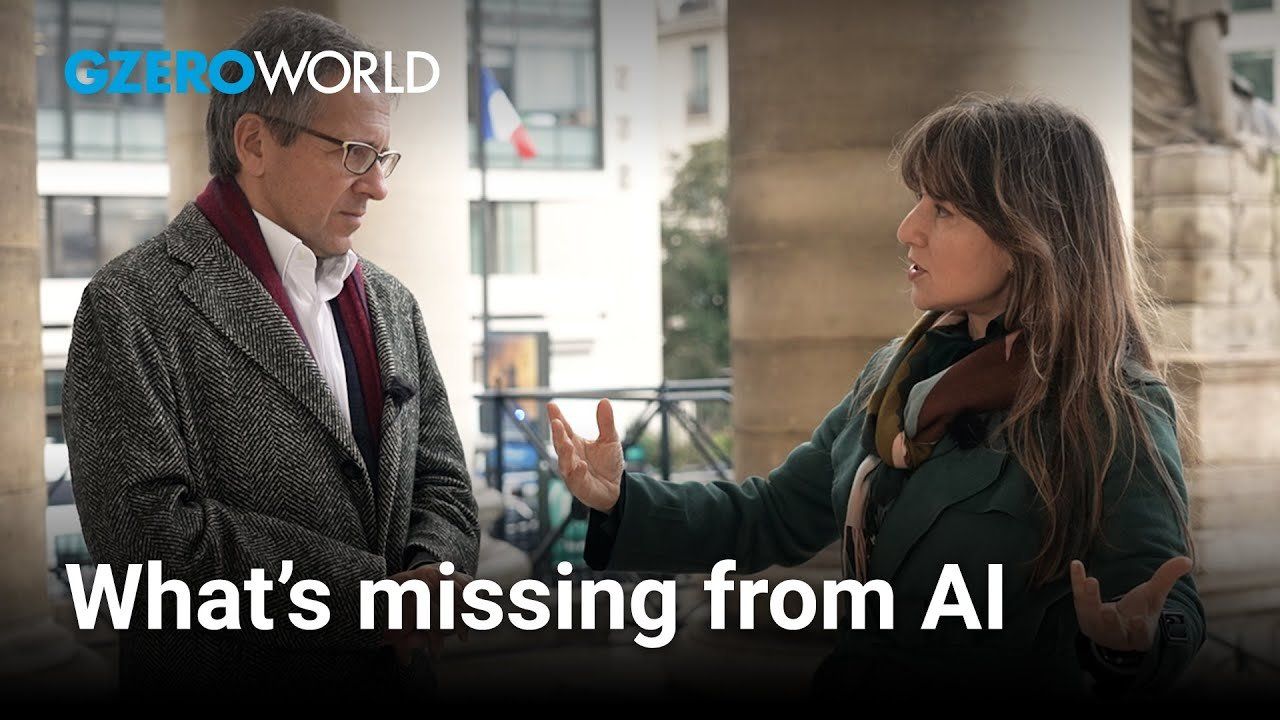GZERO World Clips
One big thing missing from the AI conversation | Zeynep Tufekci

One big thing missing from the AI conversation | Zeynep Tufekci | GZERO World

When deployed cheaply and at scale, artificial intelligence will be able to infer things about people, places, and entire nations, which humans alone never could. This is both good and potentially very, very bad.
If you were to think of some of the most overlooked stories of 2023, artificial intelligence would probably not make your list. OpenAI's ChatGPT has changed how we think about AI, and you've undoubtedly read plenty of quick takes about how AI will save or destroy the planet. But according to Princeton sociologist Zeynep Tufekci, there is a super important implication of AI that not enough people are talking about.
"Rather than looking at what happens between you and me if we use AI," Tufekci said to Ian on the sidelines of the Paris Peace Forum, "What I would like to see discussed is what happens if it's used by a billion people?" In a short but substantive interview for GZERO World, Tufekci breaks down just how important it is to think about the applications of AI "at scale" when its capabilities can be deployed cheaply. Tufekci cites the example of how AI could change hiring practices in ways we might not intend, like weeding out candidates with clinical depression or with a history of unionizing. AI at scale will demonstrate a remarkable ability to infer things that humans cannot, Tufekci explains.
President Trump has transformed the presidency—and the world—in 12 short months. Harvard’s Stephen Walt joins Ian Bremmer on the GZERO World Podcast.
Think you know what's going on around the world? Here's your chance to prove it.
This last week has provided a distillation of US President Donald Trump’s view on how American military might should be deployed at home and abroad.
When they meet at the White House today, Venezuelan opposition leader and Nobel Peace Prize winner María Corina Machado will seek to convince US President Donald Trump that it was a mistake to back Delcy Rodríguez as interim leader of Venezuela.